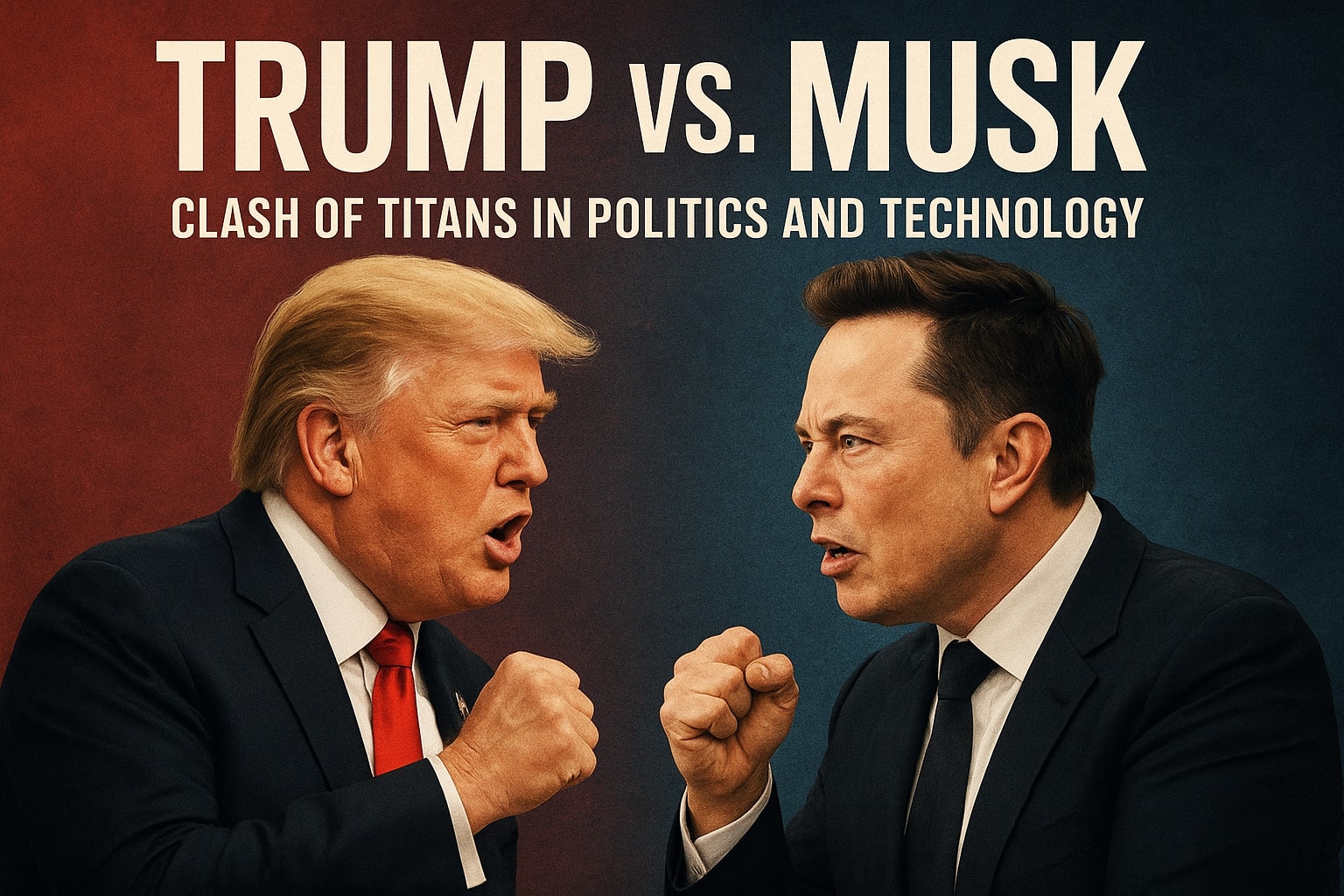The relationship between Donald Trump and Elon Musk has oscillated between camaraderie and conflict, culminating in a high-profile feud in 2025 that captivated the nation. This clash was not merely a personal dispute but a collision of ideologies, ambitions, and visions for America’s future.
From Allies to Adversaries
Initially, Trump and Musk appeared to be allies. Musk served as an advisor during Trump’s first term and was instrumental in the 2024 campaign, contributing nearly $300 million to Republican causes.
Their rapport seemed solid, with Musk even being appointed to head the Department of Government Efficiency. However, tensions began to surface over policy differences. Musk’s libertarian leanings often clashed with Trump’s populist approach, especially concerning fiscal matters.
The rupture became public in June 2025 when Musk criticized Trump’s proposed “One Big Beautiful Bill,” a sweeping tax and spending package. Musk labeled it a “disgusting abomination,” warning that it would exacerbate the national debt and undermine his vision of a sustainable future.
Trump, in turn, threatened to revoke government contracts with Musk’s companies, including Tesla and SpaceX, leading to a significant drop in Tesla’s stock value .
Escalation and Impeachment Calls
The feud intensified when Musk suggested that Trump had ties to Jeffrey Epstein’s notorious sex-trafficking ring. Trump responded by calling Musk “CRAZY” and accusing him of being disloyal.
Musk then polled his followers about forming a new political party, the “America Party,” to represent the centrist majority, signaling a potential challenge to Trump’s political base .
In retaliation, Trump warned of “very serious consequences” if Musk funded Democratic candidates, highlighting the deepening rift between the two .
A Brief Reconciliation
Despite the acrimony, the feud showed signs of thawing by September 2025. Musk publicly apologized for his earlier remarks, acknowledging that they “went too far.”
Trump accepted the apology, and the two were seen together at a memorial service for conservative activist Charlie Kirk, suggesting a tentative reconciliation .
Underlying Causes of the Feud
The Trump–Musk feud was rooted in several key factors:
Fiscal Philosophy: Musk’s advocacy for reducing the national debt clashed with Trump’s expansive spending plans.
Political Influence: Musk’s growing political activism and the formation of the America Party threatened Trump’s dominance within the Republican Party.
Personal Ego: Both men have strong personalities and a history of mutual provocation, which fueled the public nature of their dispute .
Global Implications
The fallout between Trump and Musk had international repercussions. Musk’s companies, particularly SpaceX, have global operations, and any disruption in their activities could affect international partnerships and projects.
Additionally, Musk’s influence in the tech industry means that his political stances can sway public opinion and investor confidence worldwide.
Conclusion
The Trump–Musk feud exemplifies the complexities of modern political and business relationships. It underscores how ideological differences, personal ambitions, and public personas can collide, leading to significant consequences.
While the two have reconciled for now, the underlying tensions suggest that their alliance remains fragile, and future conflicts are possible.
Donald Trump and Elon Musk, two of the most influential figures in American politics and business, have cultivated a complex and evolving relationship marked by collaboration, controversy, and occasional tension. Their partnership has significantly impacted U.S. governance, economic policy, and public discourse.
A Strategic Alliance
In 2024, Musk proposed the creation of a “government efficiency commission” to President Trump during an interview. Trump responded positively, and the Department of Government Efficiency (DOGE) was established, with Musk serving as a senior advisor. DOGE aimed to audit federal spending, reduce bureaucracy, and implement significant budget cuts.
Musk’s leadership led to the termination of thousands of federal employees and the restructuring of several agencies. While the administration initially projected savings of up to $2 trillion, subsequent reports indicated that the actual savings were closer to $160 billion, with concerns about inflated accounting figures.
Public Engagement and Media Appearances
Trump and Musk have engaged in several high-profile media appearances. In February 2025, they appeared together on Fox News’ “Hannity” to discuss DOGE’s progress.
During this interview, Trump expressed confidence in DOGE’s ability to identify substantial government savings, stating, “I think he’s going to find $1 trillion.”
Their most notable public interaction occurred in August 2024 during a livestream on Musk’s platform, X (formerly Twitter).
The event, intended to showcase an unscripted conversation, experienced technical difficulties and was criticized for lacking substantive policy discussion. Nonetheless, it highlighted the duo’s appeal to a broad audience and their shared focus on issues like immigration and government reform.
Tensions and Divergences
Despite their collaboration, tensions have surfaced between Trump and Musk. In mid-2025, Musk criticized Trump’s “One Big Beautiful Bill,” a sweeping tax and spending package, expressing concerns about its potential to increase the national debt.
In response, Trump suggested eliminating Musk’s government subsidies and contracts. Musk countered by proposing the formation of a new political party, the “America Party,” to challenge incumbents who supported the bill.
These disagreements have not led to a complete rupture. In May 2025, Trump hosted a ceremonial send-off for Musk at the White House, presenting him with a golden key as a symbol of appreciation.
Both leaders downplayed the rift, with Trump stating, “Elon’s not really leaving,” and Musk attributing a black eye he sustained to playful interaction with his son.
Global Ventures and Controversies
Beyond domestic policy, Trump and Musk’s influence extends internationally. In October 2025, Russian envoy Kirill Dmitriev proposed an ambitious undersea tunnel project connecting Alaska and Russia, dubbed the “Putin-Trump Tunnel.”
Musk’s Boring Company was suggested as a potential contractor, though the proposal faced skepticism due to logistical challenges and geopolitical tensions.
Their relationship has also sparked protests, particularly in response to DOGE’s workforce reductions and perceived overreach. Nationwide demonstrations, including the “Hands Off” movement, have criticized the duo’s approach to government reform and its impact on public services.
Thank for read
